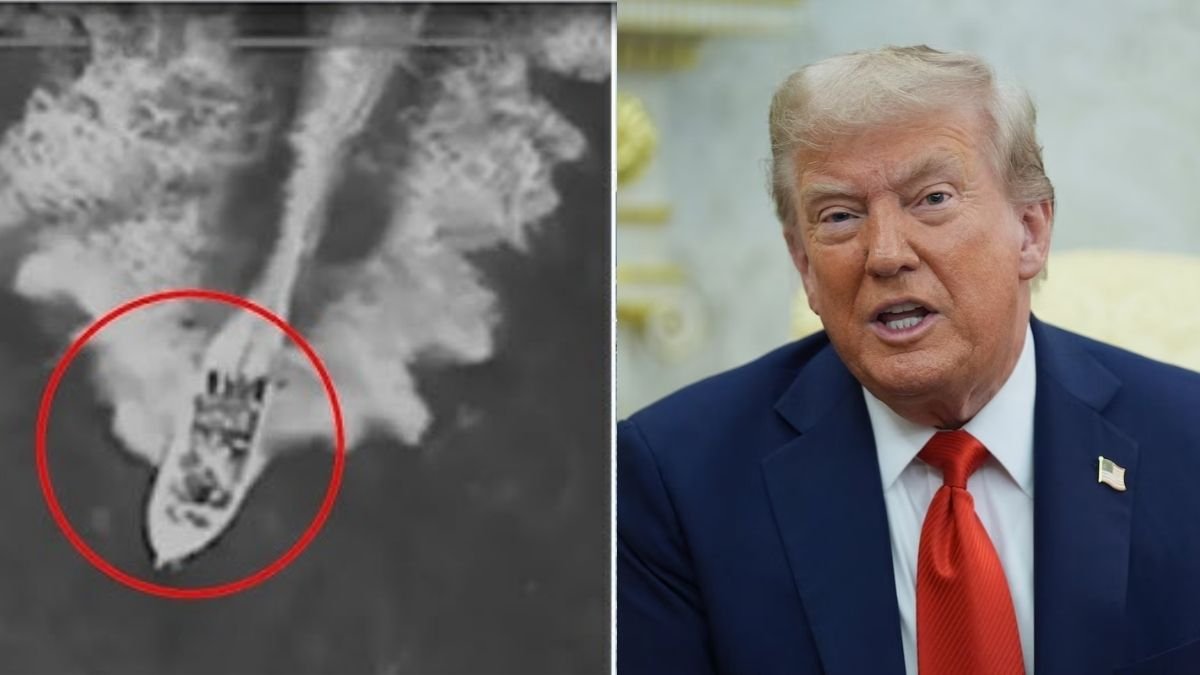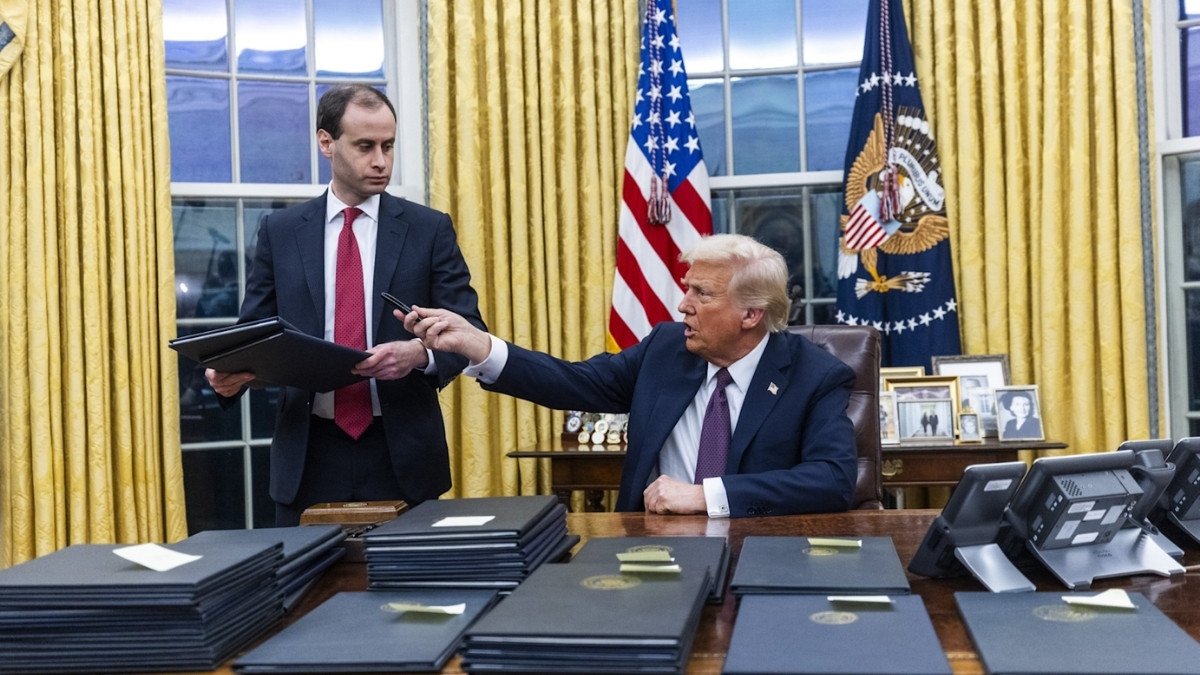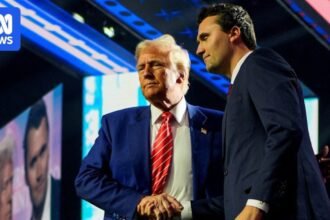President Donald Trump ordered a missile strike in international waters of the southern Caribbean, claiming it killed 11 members of the Venezuelan gang Tren de Aragua. The operation followed intelligence that the boat carried large amounts of drugs.
The 30-second black-and-white video Trump released showed a small boat under crosshairs, before a missile hit destroyed it. Trump said the strike targeted “narco-terrorists” threatening American lives.
U.S. presidents since 9/11 have conducted strikes against terrorists in nations including Afghanistan, Libya, Syria, Iraq, Somalia, Yemen, and Pakistan. This attack represents a new expansion against criminal gangs.
The strike shifts the military’s role deeper into crime fighting, work usually handled by law enforcement and border agencies. Military presence now extends to immigration enforcement, crime deterrence, and drug interdiction.
Secretary of State Marco Rubio said, “Instead of interdicting it, on the president’s orders, we blew it up—and it’ll happen again. Maybe it’s happening right now.”

Historically, U.S. armed forces defended against external threats but did not routinely enforce domestic law. The Trump administration has redefined threats to include drug traffickers and migrants, broadening military justification.
Domestically, the White House deployed the National Guard to Los Angeles and Washington, D.C., to counter “rampant violence.” Chicago, Baltimore, and New Orleans are also under consideration for future deployments.
Defense officials said the missile strike followed a secret directive signed by Trump and a legal review. The boat was struck in international waters after intelligence indicated its crew were members of Tren de Aragua.
Trump claimed the gang is controlled by Venezuelan President Nicolas Maduro, though Venezuela denied links. He described Maduro as a “very bad actor” sending gangs and migrants into the United States.
The administration plans sustained military campaigns against Latin American drug cartels. Secretary of Defense Pete Hegseth said, “President Trump is willing to go on offense in ways that others have not seen.”
Critics warned that such tactics carry legal risks. Brian Finucane of the International Crisis Group said, “We should be very concerned that the government is out killing people on specious legal grounds, especially when that could be turned inward.”
Laura Cristina Dib of the Washington Office on Latin America said the strike raises precedent concerns in the Western Hemisphere. The United States is now conducting lethal operations without public disclosure of legal or evidentiary steps.
Legal experts note Trump likely relies on Article II of the Constitution for commander-in-chief authority. No congressional approval or notification occurred prior to the strike, raising questions about legality.
The terrorist designation of Tren de Aragua allows the government to prosecute affiliates but does not, by itself, justify lethal strikes. Eric Carpenter said the designation is novel for criminal gangs but not enough to authorize force.
The administration also cited terrorist designations under the Alien Enemies Act to deport suspected cartel members. Intelligence earlier found that Venezuela does not control Tren de Aragua, complicating the legal basis for the strike.
A federal judge ruled the National Guard deployments in Los Angeles illegal, citing prohibitions against military law enforcement within U.S. borders. Major General Scott Sherman had opposed deploying troops for police-like functions.
[inline_related_posts title=”RECOMMENDED” title_align=”left” style=”list” number=”2″ align=”none” ids=”” by=”primary_cat” orderby=”rand” order=”DESC” hide_thumb=”no” thumb_right=”no” views=”no” date=”yes” grid_columns=”2″ post_type=”” tax=””]
Senior Customs and Border Protection officials questioned Sherman’s loyalty for opposing domestic troop deployments. This reflects internal tensions over the proper role of U.S. armed forces in law enforcement tasks.
Trump’s actions represent a significant shift in military and domestic policy, blurring historical boundaries between national defense and law enforcement. Critics warn of long-term legal and ethical challenges, according to theatlantic.















